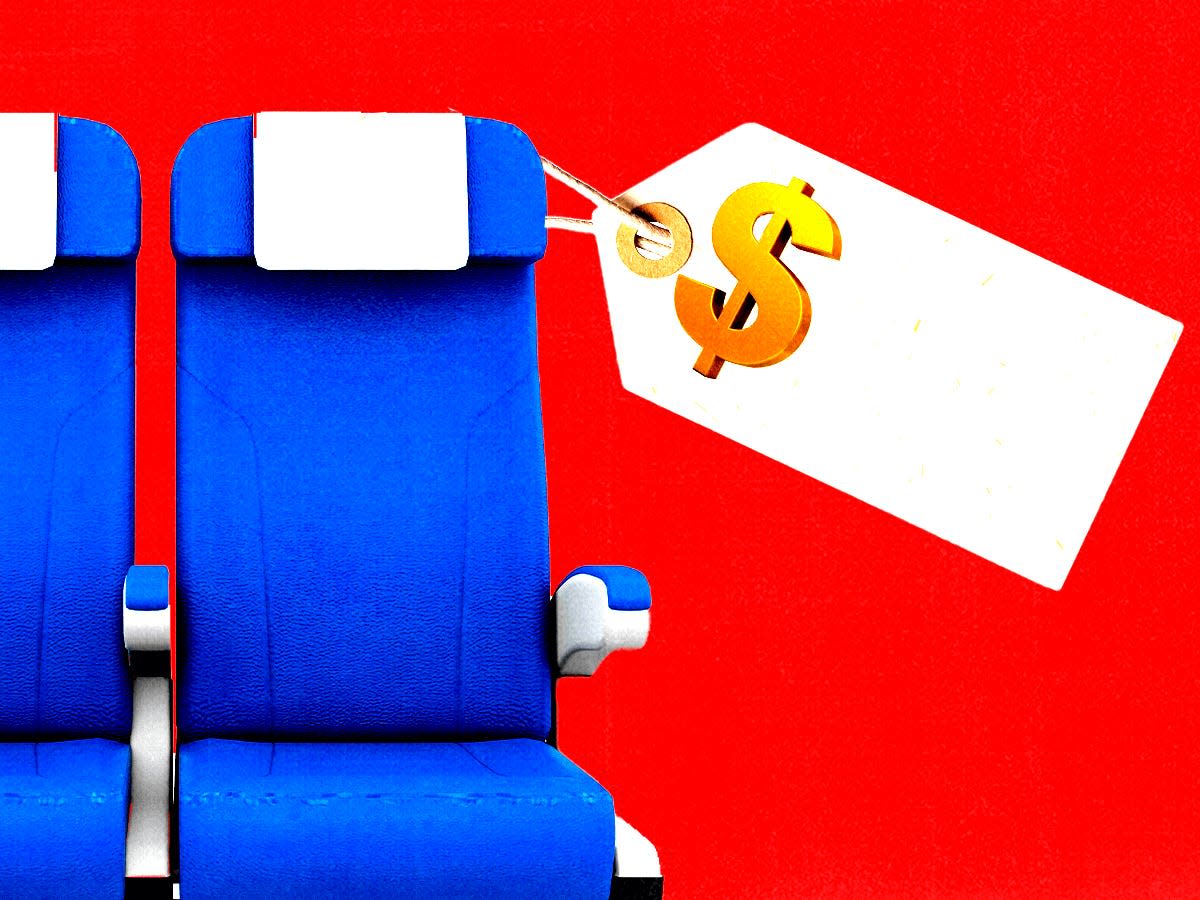It's the end of budget airlines as we know them

Southwest Airlines is ending its famous open-seating policy.
Assigned seating could generate up to $2 billion in revenue for Southwest, one analyst estimated.
The change represents a larger evolution of budget airlines' business models in the US.
Budget airlines are upending many of their original business plans as increased costs wreak havoc on their bottom lines.
On Thursday, Southwest Airlines announced the end of its open-seating policy, a 50-year practice of letting passengers choose their seats based on their boarding order versus having them assigned.
Instead, the airline will follow most other airlines in the world by assigning seats and offering premium options on all its flights, saying internal research found the vast majority of customers preferred this system. It plans to announce more details in September.
The move was an expected but nonetheless stunning reversal by perhaps the last remaining low-cost US airline that had thus far resisted many competitors' changes.
But industry conditions, such as higher labor and fuel costs and overcapacity, mean airlines like Southwest are struggling with reduced profits despite record travel demand — forcing them to seek alternative revenue opportunities.
Savanthi Syth, an airlines analyst at Raymond James, estimated in June that paid seat assignments could generate between $600 million and $2 billion in revenue. Adding basic-economy and premium seating could add another $400 million and $1 billion in revenue, respectively, she said.
Budget flying has been moving in this direction for years
The industry's sea change has left budget carriers scrambling to increase revenue without turning away customers, prompting major policy changes.
Henry Harteveldt, a travel analyst, told Business Insider these adjustments come as operators evolve to keep up with changing customer preferences, adding that credit cards and certain routes could be lucrative for these carriers.
"The new seating policy can further pump up Southwest's credit card, where maybe it can offer cardholders free seats or other awards for being loyal frequent flyers," he said, adding that the introduction of red-eye flights would make it more competitive against legacy competitors.
Other budget airlines have been similarly evolving their business models in recent years.
Frontier Airlines and Spirit Airlines, for example, ditched most cancellation and change fees for ticket holders. These typically made money for the carriers but irritated customers.
This month, Spirit warned of a revenue decline because fewer passengers were buying its add-ons, a mainstay of the budget-airline business model.
Those fees were critical to carriers like Spirit, whose revenue models don't accommodate free carry-ons and sodas, unlike legacy airlines.
Meanwhile, JetBlue now charges up to $50 for "Core Preferred" seats — the window and aisle seats toward the front of the regular economy cabin.
That came after a federal judge blocked JetBlue's planned merger with Spirit. Struggles with profitability also saw JetBlue shake up its route network.
The carrier has even delved into business-class seating with its lie-flat Mint product — something not typically seen on budget carriers.
Frontier has recently added a "business class" where the middle seat is blocked off to attract more high-paying customers, while Spirit has its "Big Front Seat."
United Airlines CEO Scott Kirby previously criticized ultra-low-cost airlines. "It's a fundamentally flawed business model," he said. "The customers hate it."
What comes next for Southwest?
Southwest said more details about its plans would be announced at its September investor day.
"This is what our customers want," CEO Bob Jordan told CNBC Thursday, adding that the company had been working toward the changes for over a year.
An activist hedge fund breathing down the company's neck and demanding a C-suite shake-up, he said, had nothing to do with the changes.
"I know there are going to be customers who say, 'I want to stay with open seating,'" Jordan said. "It's a minority, but we had the same thing when we switched from plastic boarding passes; we had the same thing when we when we took peanuts out of the cabin, so I'm convinced we can win them over."
Read the original article on Business Insider

